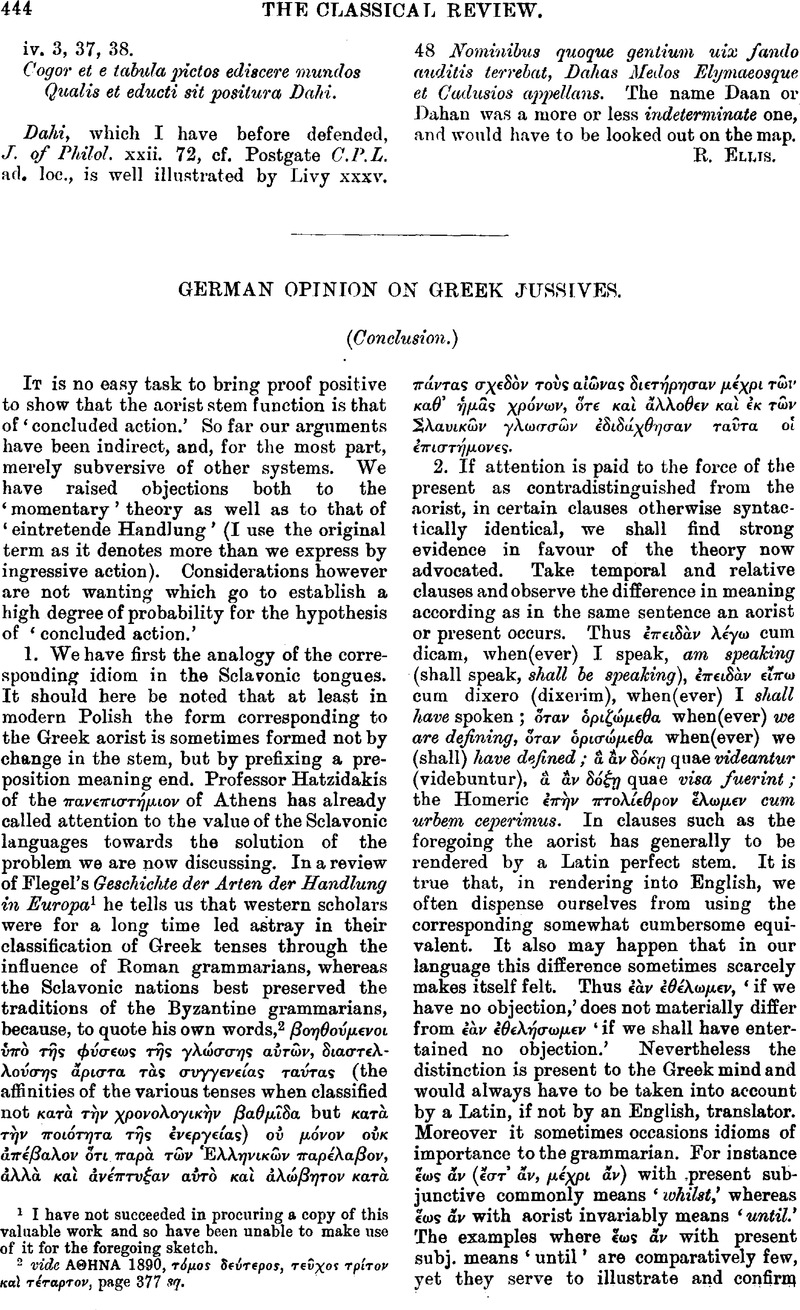No CrossRef data available.
Published online by Cambridge University Press: 27 October 2009

page 444 note 1 I have not succeeded in procuring a copy of this valuable work and so have been unable to make use of it for the foregoing sketch.
page 444 note 2 vide AΘHNA 1890, ![]() , page 377 sq.
, page 377 sq.
page 445 note 1 In commenting on πρὶν ἄν followed by persent subjunctive (c.g. οἰώμεθα) Shilleto writes: ‘ in all these I understand not opus perfectum but opus inchoatum. ’ There, as in a nutshell, and in the words of one of our most remarkable modern scholars, is the thesis we are endeavouring to uphold. I cannot take leave of this subject without thanking my former pupil Mr. Goodier, B.A., now Professor of Humanities at Stonyhurst College, for having called by attention to this excellent note.
page 446 note 1 Acta Apostolorum sive Lucac ad Theophilum liber alter, editio philologica apparatu critico, commentario perpetuo, indice verborum illustrata, auctore Friderico Blass. Dr. Phil. etc., etc. Göttingen. 1895.Google Scholar
page 446 note 2 ![]() .
.
page 446 note 3 Professor Hatzidakis, in his classification of tenses, invariably couples future and aorist. In that, I believe, he is following in the wake of the Alexandrine Grammarians and the reason, no doubt, is the identity of stem in these formations, cf. ![]() . I am puzzled to know whether the quality of action attributed to these future forms by the Athenian Professor is identical with that of the aorist. Does ερω, for instance, only mean ‘ I shall say,’ or may it not be equivalent to ‘ I shall be saying’? Modern Greek has two distinct forms like our own: θά γράφω and θά γράΨω.
. I am puzzled to know whether the quality of action attributed to these future forms by the Athenian Professor is identical with that of the aorist. Does ερω, for instance, only mean ‘ I shall say,’ or may it not be equivalent to ‘ I shall be saying’? Modern Greek has two distinct forms like our own: θά γράφω and θά γράΨω.
page 447 note 1 Delbrück, R., Syntaktische Forschungen, V. Allindische Syntax (Halle 1888), page 280 § 164.Google Scholar
page 447 note 2 Some friends tell me they have always understood the word ‘ momentary ’ to mean ‘ completed and over, ’ and to denote a something ‘ past and done with ’ rather than an action of short duration. Their interpretation seems to me to do more credit to their Greek instinct than to their use of words. Some such explanation must naturally force itself on the teacher who attempts to expound the aprist κατ ἐξοχήν of absolute past events.